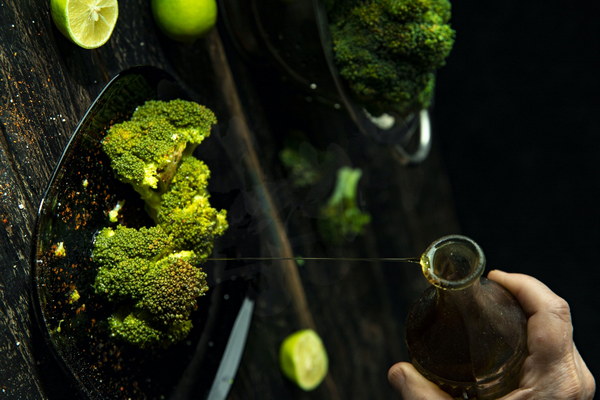Revitalizing Your Health The Art of Brewing Tea to Boost Spleen Function and Ditch Dampness
In the pursuit of a harmonious body and mind, many turn to the ancient practice of tea brewing, not just for its soothing properties, but also for its potential health benefits. One such benefit is the ability of certain teas to boost spleen function and alleviate dampness, a common issue in traditional Chinese medicine. Here's a guide on how to brew the perfect tea to achieve these wellness goals.
Understanding Spleen Function and Dampness
In traditional Chinese medicine, the spleen is considered the organ responsible for transforming and transporting nutrients from the food we eat. A healthy spleen ensures that the body receives the necessary nourishment to function optimally. However, when the spleen becomes weakened, it can lead to various health issues, including fatigue, bloating, and digestive problems.
Dampness, on the other hand, is a concept in TCM that refers to a condition where excess moisture accumulates in the body, often due to environmental factors or poor diet. Symptoms of dampness can range from mild, such as a heavy feeling in the limbs, to more severe, like joint pain or edema.
Choosing the Right Tea
To address both spleen weakness and dampness, it's important to select the right type of tea. Herbs like Astragalus (Huang Qi), Ginseng (Ren Shen), and Poria (Fu Ling) are often recommended for their properties that aid in spleen function and the removal of dampness.
1. Astragalus (Huang Qi): Known for its immune-boosting properties, Astragalus is a staple in many traditional Chinese remedies. It's believed to strengthen the spleen and improve the body's resistance to external pathogens.
2. Ginseng (Ren Shen): Ginseng is renowned for its ability to boost energy and improve overall vitality. It is also thought to enhance the spleen's function and support the body's resistance to diseases.
3. Poria (Fu Ling): Poria is a mushroom-like herb that is often used to drain dampness from the body. It is believed to aid in digestion and reduce bloating and water retention.
The Brewing Process
Once you have selected the appropriate herbs, follow these steps to brew a tea that promotes spleen health and reduces dampness:
1. Gather Your Ingredients: Purchase high-quality Astragalus, Ginseng, and Poria from a reputable supplier. Ensure that the herbs are fresh and have not been stored for an extended period.
2. Prepare the Herbs: Rinse the herbs under cold water to remove any impurities. Then, chop the Ginseng and Astragalus into smaller pieces to facilitate quicker infusion.
3. Boil Water: Use fresh, filtered water and bring it to a boil. The water should be as pure as possible to avoid any contaminants that might interfere with the tea's benefits.
4. Infuse the Herbs: Place the chopped Astragalus, Ginseng, and Poria into a teapot or a heat-resistant bowl. Pour the boiling water over the herbs and cover the container to trap the steam and heat.
5. Steep the Tea: Allow the tea to steep for about 15-20 minutes. The longer the steeping time, the stronger the tea will be, so adjust the time according to your taste preference.

6. Strain and Serve: Once the tea has steeped, strain it using a fine-mesh sieve or a tea strainer to remove the herbs. Pour the tea into a cup and enjoy it warm.
7. Re-steep the Herbs: If desired, you can re-steep the herbs a few times to extract additional benefits. Just be sure to use fresh boiling water each time.
Conclusion
Brewing tea to boost spleen function and alleviate dampness is a simple yet effective way to promote overall health and wellness. By choosing the right herbs and following a proper brewing process, you can create a beverage that not only tastes delightful but also supports your body's internal balance. Remember to consult with a healthcare professional or a TCM practitioner before starting any new herbal regimen, especially if you have pre-existing health conditions or are taking other medications.









